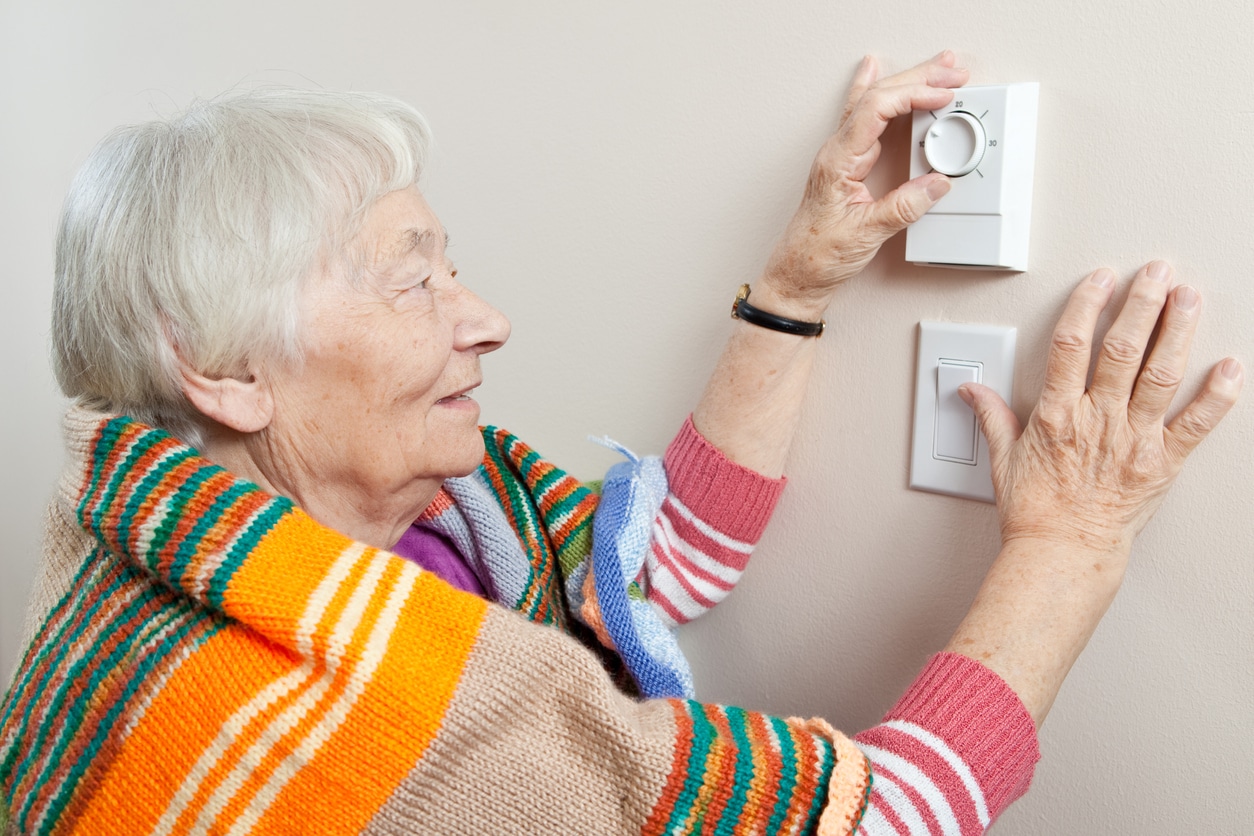
If you ever experience a furnace outage, you can pretty much count on one thing: It will happen at the most inconvenient, least-comfortable time. Loss of heating can be the result of a local utility failure, or it can be due to a malfunction with the furnace itself. In average winter weather, the typical house can retain acceptable heat for 8 to 12 hours during a furnace outage. Meanwhile, you'll need to take certain precautions to keep both your home and its occupants safe, such as:
- Just to make sure: Check the furnace thermostat. Confirm that the thermostat control is in the “On” position and set to “Heat” and that the temperature setting is a typical winter indoor temperature of between 68 and 72 degrees.
- Keep all exterior doors shut as much as possible. If you can feel cold outdoor air seeping in underneath the doors, use towels to block the flow of air.
- Radiant heat loss through glass windows is considerable in cold weather. Close drapes on all your windows to conserve indoor warmth.
- Use alternate heat sources such as portable space heaters. Follow all of the manufacturer’s safety recommendations. Keep units at least 3 feet from anything flammable on all sides and make sure an adult is always present in the room when the heater's running.
- As the structure of an unheated house chills, water pipes may be more likely to freeze. Open faucets to a slow, steady drip to keep water moving through pipes and prevent freezing during a furnace outage.
- Add layers of clothing to retain body heat. Stay ahead of heat loss by putting on additional clothing before indoor temperatures decline excessively.
- Light the fireplace if you've had a fireplace and chimney inspection by a qualified professional in the past year.
- You may be tempted to start the car and run the heater to warm up, but NEVER run any vehicle inside a garage. Also, do not bring camping stoves, gas-fired patio heaters, charcoal grills, or other portable units inside the house. All these options produce deadly carbon monoxide.
For all your HVAC needs, talk to the heating professionals at Jackson & Sons.